- Home
- James Rollins
Unrestricted Access: New and Classic Short Fiction Page 33
Unrestricted Access: New and Classic Short Fiction Read online
Page 33
The back door opened, and the boy stepped out onto the porch. Brutus gained his feet and backed away.
“Benny, are you sure you don’t want to come inside? I made a bed for you in the kitchen.” He pointed toward the open door. “It’s warm. And look, I have a treat for you.”
The boy held out a hand, but Brutus already smelled the bacon, still smoking with crisply burned fat. He turned away. Back at the training yard, the others had tried to use bait on him, too. But after his sister, Brutus had always refused, no matter how hungry.
The dog crossed to the top step of the porch and lay down.
The boy came and sat with him, keeping his distance.
Brutus let him.
They sat for a long time. The bacon still in his fingers. The boy finally nibbled it away himself. “Okay, Benny, I have some homework.”
The boy began to get up, paused, then carefully reached out to touch him on the head. Brutus didn’t growl, but his fur bristled. Noting the warning, the boy sagged, pulled back his hand, and stood up.
“Okay. See ya in the morning, Benny boy.”
He didn’t watch the boy leave, but he listened for the door to clap shut. Satisfied he was alone, he settled his head to his paws. He stared out into the yard.
The moon was already up, full-faced and bright. Lights twinkled. Distantly, he listened as the household settled in for the night. A television whispered from the front room. He heard the boy call down from the upstairs. His mother answered.
Then suddenly Brutus was on his feet, standing stiff, unsure what had drawn him up. He kept dead still. Only his ears swiveled.
A knock sounded on the front door.
In the night.
“I’ll get it,” the mother called out.
Brutus twisted, bolted for the old sofa on the porch, and climbed half into it, enough to see through the picture window. The view offered a straight shot down the central dark hallway to the lighted front room.
Brutus watched the woman step to the door and pull it open.
Before she’d gotten it more than a foot wide, the door slammed open. It struck her and knocked her down. Two men charged inside, wearing dark clothes and masks pulled over their heads. Another kept watch by the open door. The first man backed into the hallway and kept a large pistol pointed toward the woman on the floor. The other intruder sidled to the left and aimed a gun toward someone in the dining room.
“Don’t move!” the second gunman shouted.
Brutus tensed. He knew that voice, graveled and merciless. In an instant, his heart hammered in his chest, and his fur flushed up all over his body, quivering with fury.
“Mom? Dad?” The boy called from the top of the stairs.
“Jason!” the father answered from the dining room. “Stay up there!”
The leader stepped farther into the room. He shoved his gun out, holding it crooked. “Old man, sit your ass down!”
“What do you want?”
The gun poked again. “Yo! Where’s my dog?”
“Your dog?” the mother asked on the floor, her voice trembling with fear.
“Brutus!” the man hollered. He lifted his other arm and bared the stump of a wrist. “I owe that bitch some payback . . . and that includes anyone taking care of his ass! In fact, we’re going to have ourselves an old-fashioned barbecue.” He turned to the man in the doorway. “What are you waiting for? Go get the gasoline?”
The man vanished into the night.
Brutus dropped back to the porch and retreated to the railing. He bunched his back legs.
“Yo! Where you keeping my damn dog? I know you got him!”
Brutus sprang forward, shoving out with all the strength in his body. He hit the sofa and vaulted over it. Glass shattered as he struck the window with the crown of his skull. He flew headlong into the room and landed in the kitchen. His front paws struck the floor before the first piece of glass. He bounded away as shards crashed and skittered across the checkerboard linoleum.
Down the hall, the first gunman began to turn, drawn by the noise. But he was too late. Brutus flew down the hall and dove low. He snatched the gunman by the ankle and ripped the tendon, flipping the man as he ran under him. The man’s head hit the corner of a walnut hall table, and he went down hard.
Brutus spotted a man out on the front porch, frozen in midstep, hauling two large red jugs. The man saw Brutus barreling toward him. His eyes got huge. He dropped the jugs, spun around, and fled away.
A pistol fired, deafening in the closed space. Brutus felt a kick in his front leg. It shattered under him, but he was already in midleap toward the one-handed gunman, his old trainer and handler. Brutus hit him like a sack of cement. He head-butted the man in the chest. Weight and momentum knocked the legs out from under the man. They fell backward together.
The pistol blasted a second time.
Something burned past Brutus’s ear, and plaster rained down from the ceiling.
Then they both hit the hardwood floor. The man landed flat on his back, Brutus on top. The gun flew from his fingers and skittered under the dining room chair.
His trainer tried to kick Brutus away, but he’d taught the dog too well. Brutus dodged the knee. With a roar, he lunged for the man’s throat. The man grabbed one-handed for an ear, but Brutus had lost most of the flap in an old fight. The ear slipped from the man’s grip, and Brutus snapped for the tender neck. Fangs sank for the sure kill.
Then a shout barked behind him. “Benny! No!”
From out the corner of an eye, he saw the father crouched by the dining room table. He had recovered the pistol and pointed it at Brutus.
“Benny! Down! Let him go!”
From the darkness of the pit, Brutus growled back at the father. Blood flowed as Brutus clamped harder on his prey. He refused to release. Under him, the trainer screamed and gurgled. One fist punched blindly, but Brutus ground his jaws tighter. Blood flowed more heavily.
“Benny, let him go now!”
Another sharper voice squeaked in fear. It came from the stairs. “No, Dad!”
“Jason, I can’t let him kill someone.”
“Benny!” the boy screamed. “Please, Benny!”
Brutus ignored them. He wasn’t Benny. He knew the pit was where he truly belonged, where he’d always end up. As his vision narrowed and darkness closed over him, he let himself fall deeper into that black, bottomless well, dragging the man with him. Brutus knew he couldn’t escape; neither would he let this one go.
It was time to end all this.
But as Brutus sank into the pit, slipping away into the darkness, something stopped him, held him from falling. It made no sense. Though no one was behind him, he felt a distinct tug. On his tail. Holding him steady, then slowly drawing him back from the edge of the pit. Comprehension came slowly, seeping through the despair. He knew that touch. It was familiar as his own heart. Though it had no real strength, it broke him, shattered him into pieces.
He remembered that tug, from long ago, her special ambush.
Done to protect him.
Ever his guardian.
Even now.
And always.
No, Benny . . .
“No, Benny!” the boy echoed.
The dog heard them both, the voices of those who loved him, blurring the line between past and present—not with blood and darkness, but sunlight and warmth.
With a final shake against the horror, the dog turned his back on the pit. He unclamped his jaws and tumbled off the man’s body. He stood on shaking limbs.
To the side, the trainer gagged and choked behind his black mask. The father closed in on him with the gun.
The dog limped away, three-legged, one forelimb dangling.
Footsteps approached from behind. The boy appeared at his side and laid a palm on his shoulder. He left his hand resting there. Not afraid.
The dog trembled, then leaned into him, needing reassurance.
And got it.
“Good boy, Benny. Good boy
.”
The boy sank to his knees and hugged his arms around the dog.
At long last . . . Benny let him.
Gone to the Dogs
All the prior stories had been published in various ways across different venues. I hope having them all in one volume has been both convenient and entertaining, while perhaps offering a bit of “unrestricted access” to the behind-the-scenes origins to these stories.
Still, in all good conscience, I also wanted to offer something unique to this volume, a new story never before published. And not just a “short” story, but a true novella—a work occupying that blurry borderlands between a short story and a full-length novel.
But what would I write about?
I decided to draw upon everything you just read.
The novella—Sun Dogs—has a tie into the Sigma world, while concentrating on a unique pairing. The story has a fantastical element to it, while being grounded in the sand, rock, and dust of the Sonoran Desert. Similar to “The Pit,” it also has sections written from the point of view of a dog.
The two main characters—Captain Tucker Wayne and his military war dog, Kane—were featured in the earlier story “Tracker” and appeared in the Sigma novel Bloodline and in their own solo books, The Kill Switch and War Hawk.
Plainly, this dynamic duo holds a special place in my heart.
But where did they come from?
Certainly writing “The Pit” played a role. I enjoyed putting my readers into the paws of that unique warrior in a dog-fighting ring. Back then, I thought that would be the end of it—until I participated in a USO tour to Iraq and Kuwait during the winter of 2010.
It was an honor to meet the men and women out in the field, to see the hardship of their lives, to visit those wounded in hospitals. But I also was able to see war dogs and their handlers training and working—even playing together. They were such a unique fighting unit that I knew I wanted to try to capture that bond as best I could and share it with the world.
Upon returning home, I visited Lackland Air Force Base and was able to interview dog handlers and trainers and to learn more about those four-legged warriors and the men and women who stood beside them.
After that, I practiced writing about this pair—both in novel-length and in short story form. The novella that follows is my attempt to take all that past knowledge and tell one more story about Tucker and Kane, a story of how grief is etched in bone and sacrifice is never forgotten.
That is “Sun Dogs.”
Sun Dogs
James Rollins
(1)
April 22, 5:50 a.m.
Sonoran Desert, Arizona
Dawn broke with the crack of a pistol.
Tucker Wayne rolled free of his sleeping bag before the sound of the gunshot faded across the desert landscape. Standing in his boxers, he cocked an ear and listened as the blast reverberated off the slabs of red rock thrusting thousands of feet out of the sand and brush. After years with the US Army Rangers—deployed across sandboxes far more hostile than here in the deserts of Arizona—he always slept with one eye open and one ear cocked.
As he shivered in the dawn chill, he struggled to pinpoint the shot’s location, straining his senses. He smelled the perfume of desert poppies. He noted the curl of smoke from a lone ember of last night’s campfire. He felt the ice in the breezes funneling through the canyons.
His head swiveled as he identified the gunshot’s source.
To the northwest . . . maybe a mile or two off.
His heart continued to pound, fueled both by the present danger and echoes out of his past. Prior battles had been indelibly etched into his body, rewiring his nerves so tautly that it took only the barest hint of a threat—real or imagined—to jangle his entire body, sending him into a near-panicked state of alertness.
And he wasn’t the only one.
Kane stood at his knee. His teammate’s seventy pounds of lean muscle were stone hard, his tail held high, his ears stiff and straight. Kane was a Belgian Malinois, a shepherd breed often used by the military due to their fierce loyalty and intelligence. After surviving multiple deployments in the field, the two had become bound together tighter than any leash, each capable of reading the other, a connection that went beyond any spoken word or hand signal. After leaving the service, Tucker took Kane with him. The two were now an inseparable team.
Tucker reached down and scratched Kane’s black-and-tan ruff. His fingers discovered old scars, reminding him of his own wounds: some easy to see, others just as well hidden.
Even now, Tucker had trouble separating past from present. Old memories flooded through him. While Kane had grown to become an extension of himself, his disembodied right hand, Tucker once had a left hand, too.
As he stared, another desert overlapped this one. His nostrils suddenly filled with the smell of burning oil, his gaze flashed to the fall of knives, his ears echoed with screams of his wounded teammates. His sight dimmed to a vision of a dark-furred form sprawled on red rock.
Kane’s littermate.
Abel . . .
Another gunshot shattered apart that painful memory, calling him back to the present. He crouched lower. These gunshots weren’t imagined. They were no figment out of his war-torn past. This was real.
And far too close for comfort.
A third sharp crack confirmed his earlier suspicion that the weapon was no sport rifle or shotgun. It was a pistol, which was part of the reason the hairs on his bare arms stood on end.
Who goes hunting in the desert with a handgun?
He tried to rationalize that it might be someone target shooting. But his camp was forty miles outside of Sedona, well off any road, reachable only by a four-wheel vehicle, like the Jeep he’d rented. It was a long way to travel to pop off at beer bottles on boulders.
He closed his eyes, rewinding events to the moment before he had burst from his bedroll. Had there been a faint scream accompanying the first shot? Was that what had set his teeth on edge? Or was the scream just a delusion, a ghost crying out of his past?
Kane growled next to him, though it was done silently so as not to give themselves away. The only signal of warning was a low reverberation of the dog’s ribs as Kane leaned against his leg.
Then he heard it: a furious crunching of sand, a frantic crashing of brittle branches. He turned as a small shape hurtled into view on his right, running low to the ground. It was another dog, with the spotted sleek coat and brown head of a German shorthaired pointer. The dog raced across the desert, aiming for their camp. Its sharp nose must have picked out their location and sent it running toward the only whiff of humanity.
But why?
Tucker dropped to a knee and signaled Kane to sit next to him, to offer a less threatening greeting.
The shorthaired pointer slowed as it neared the camp and maintained a wary boundary a few yards off. With its stubby tail tucked low, it turned twice, weaving a nervous S-shaped pattern. It plainly wanted to join them but needed reassurance.
Tucker gave it.
“It’s okay, boy,” he encouraged softly. “We’re all buddies here.”
To reinforce this greeting, he passed a silent command to Kane. His furry teammate had a working vocabulary of a thousand words and knowledge of over a hundred hand signals. Tucker extended his pinkie and circled it once in the air.
Be friendly.
Obeying immediately, Kane swished his tail with enough vigor to wiggle his hindquarters, accompanying this greeting with a welcoming whine of excitement.
After another few moments of strained hesitation—evidenced from the shorthair’s heavy panting and the amount of white showing around those amber eyes—the dog slunk lower. With its short tail still tucked, the pointer sidled across the invisible boundary and entered their camp.
“That’s a good boy,” Tucker reassured him.
The shorthair approached to within a few feet, paused, then barreled up to them. Once in Tucker’s shadow, the dog quickly sat, shivering, trem
bling, whining softly.
Kane sniffed at the newcomer, while Tucker rubbed the dog’s chest and neck, letting him know he was safe. He checked the red collar, the bronze tag.
He read aloud the name inscribed there. “Cooper.”
This earned a brief wag of the dog’s tail.
Tucker also noted the couple feet of leather dangling from the collar.
Part of a leash.
He followed its short length to the end. No chew marks, only a clean cut. Someone had freed the dog by slicing its leash. As his other hand continued to rough the dog’s flank, his fingers discovered a patch of warm dampness. He pulled his arm up and noticed a crimson stain across his palm.
Blood.
A quick inspection revealed no wound.
So not the dog’s blood.
The gunshots echoed in his head.
Not good.
As he debated how to proceed, he checked the backside of the dog’s tag and found an address in Sedona, a phone number, and another name: Jackson Kee. He stared out at the desert, now gone ominously silent.
Was the blood from the dog’s owner?
Tucker pictured the man cutting his companion loose in a last-ditch effort to fetch help, maybe praying the dog would reach civilization. Tucker didn’t bother trying to extend that reach now with his cell phone. Even in downtown Sedona, cell signal was spotty at best. Due to the surrounding red rock peaks and iron-rich soil, it was even worse out here.
But he had another means of communication.
He debated whether or not to use it. Ever a loner, he preferred to lean on his own skills. He trusted few people, a suspicion ingrained into him long before the horrors of war had revealed the true depths of man’s inhumanity. During his decade in the army, he proved to be a superb dog handler, testing through the roof in regard to emotional empathy, which helped him bond to his subjects.
Maybe too deeply.
Tucker knew an evaluation by army psychologists attributed this innate affinity to early childhood trauma. Raised in North Dakota, he had been orphaned as a toddler, when his parents had been killed by a drunk driver. He’d been left in the care of his grandfather, who had a heart attack when Tucker was thirteen. From there, he’d been dumped into foster care. During his years in the system, he learned to read others as a way of surviving, to sense the mood of another, and act accordingly. Such a chaotic and unstable upbringing had not only honed his empathic skills, but it impressed on him how little he could count on others.

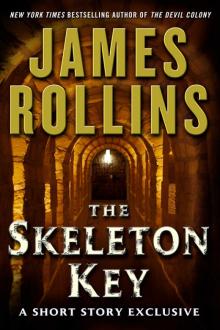 The Skeleton Key
The Skeleton Key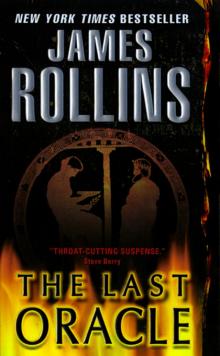 The Last Oracle
The Last Oracle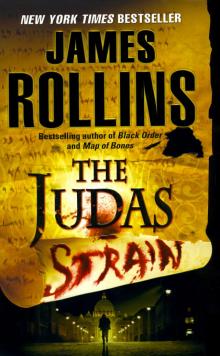 The Judas Strain
The Judas Strain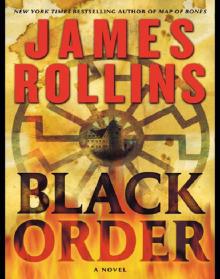 Black Order
Black Order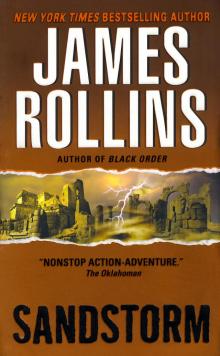 Sandstorm
Sandstorm Ghost Ship
Ghost Ship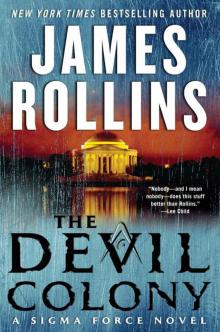 The Devil Colony
The Devil Colony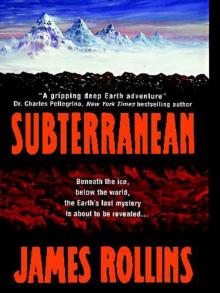 Subterranean
Subterranean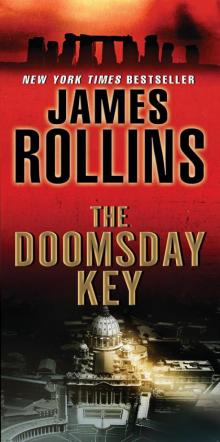 The Doomsday Key
The Doomsday Key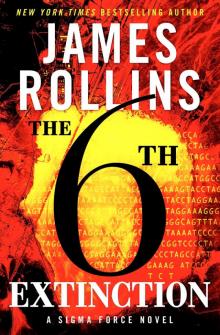 The 6th Extinction
The 6th Extinction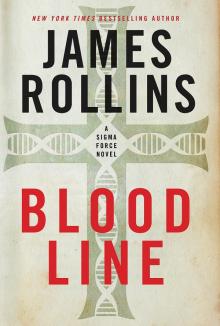 Bloodline
Bloodline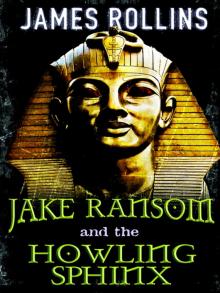 Jake Ransom and the Howling Sphinx
Jake Ransom and the Howling Sphinx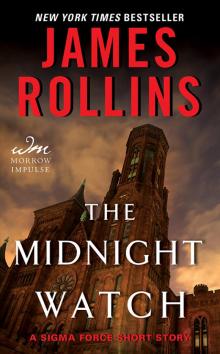 The Midnight Watch
The Midnight Watch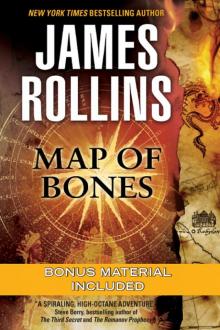 Map of Bones
Map of Bones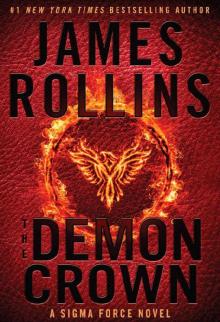 The Demon Crown
The Demon Crown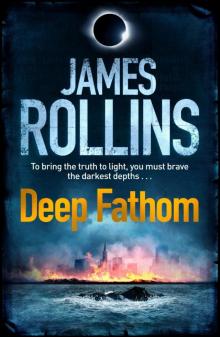 Deep Fathom
Deep Fathom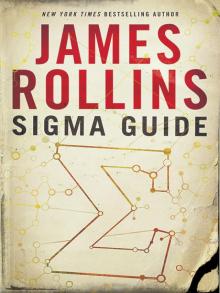 Sigma Guide
Sigma Guide Kowalski's in Love
Kowalski's in Love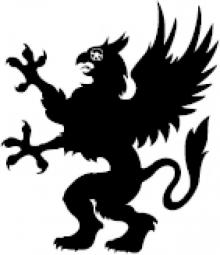 Jake Ransom and the Skull King's Shadow
Jake Ransom and the Skull King's Shadow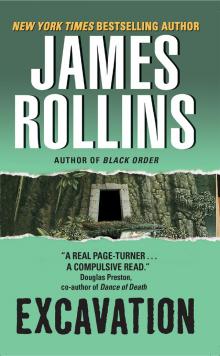 Excavation
Excavation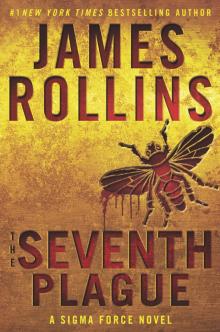 The Seventh Plague
The Seventh Plague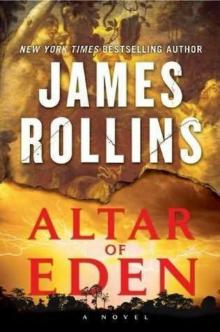 Altar of Eden
Altar of Eden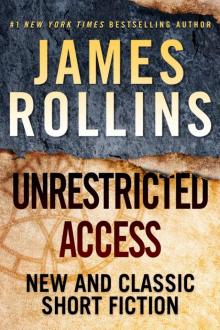 Unrestricted Access: New and Classic Short Fiction
Unrestricted Access: New and Classic Short Fiction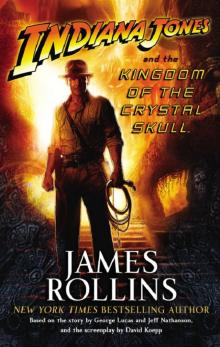 Indiana Jones and the Kingdom of the Crystal Skull
Indiana Jones and the Kingdom of the Crystal Skull Crucible
Crucible The Eye of God
The Eye of God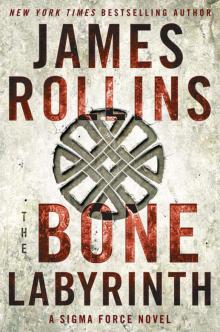 The Bone Labyrinth
The Bone Labyrinth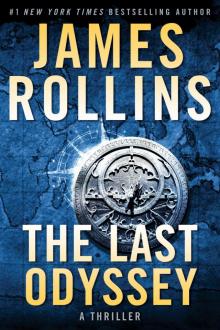 The Last Odyssey: A Thriller
The Last Odyssey: A Thriller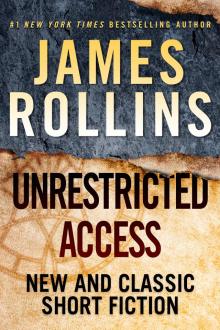 Unrestricted Access
Unrestricted Access Amazonia
Amazonia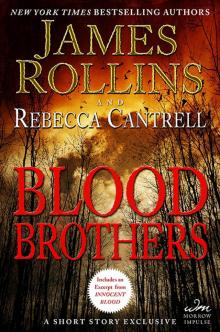 Blood Brothers: A Short Story Exclusive
Blood Brothers: A Short Story Exclusive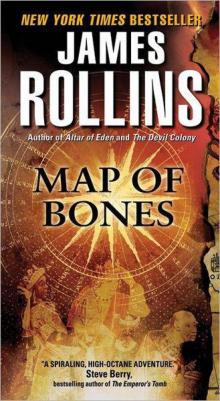 Map of Bones: A Sigma Force Novel
Map of Bones: A Sigma Force Novel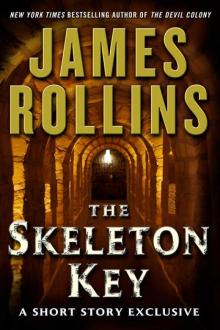 The Skeleton Key (sigma force)
The Skeleton Key (sigma force)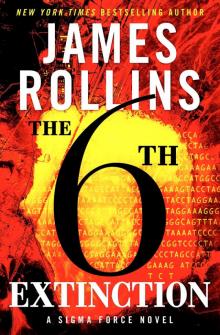 Sigma Force 10 - The Sixth Extinction
Sigma Force 10 - The Sixth Extinction Innocent Blood
Innocent Blood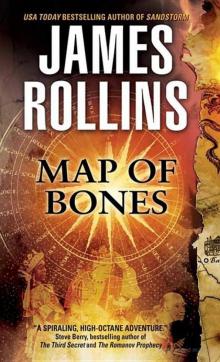 Map of Bones sf-2
Map of Bones sf-2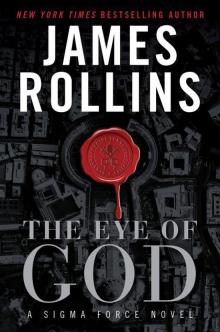 The Eye of God: A Sigma Force Novel
The Eye of God: A Sigma Force Novel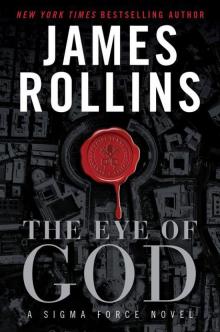 The Eye of God: A Sigma Force Novel sf-9
The Eye of God: A Sigma Force Novel sf-9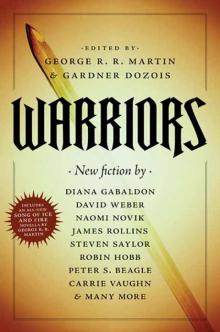 The Pit
The Pit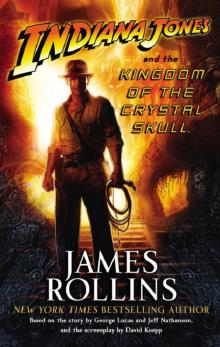 Indiana Jones and the The Kingdom Of The Crystal Skull
Indiana Jones and the The Kingdom Of The Crystal Skull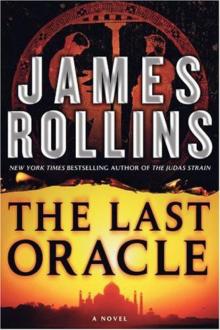 The Last Oracle (2008) sf-5
The Last Oracle (2008) sf-5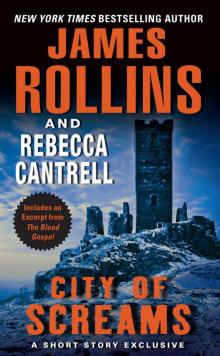 City of Screams
City of Screams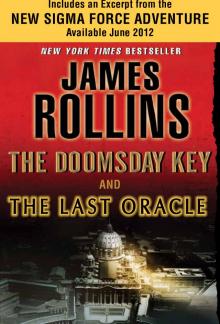 The Doomsday Key and The Last Oracle with Bonus Excerpts
The Doomsday Key and The Last Oracle with Bonus Excerpts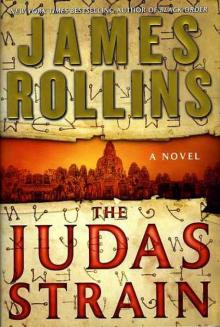 The Judas Strain sf-4
The Judas Strain sf-4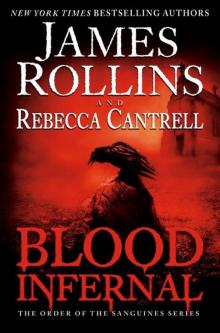 Blood Infernal
Blood Infernal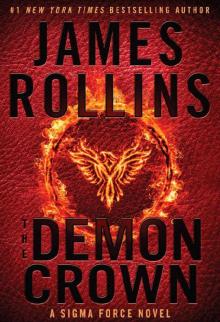 The Demon Crown: A Sigma Force Novel
The Demon Crown: A Sigma Force Novel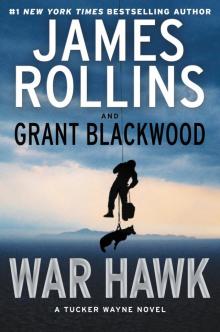 War Hawk: A Tucker Wayne Novel
War Hawk: A Tucker Wayne Novel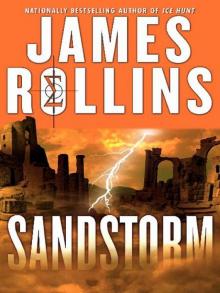 SANDSTORM sf-1
SANDSTORM sf-1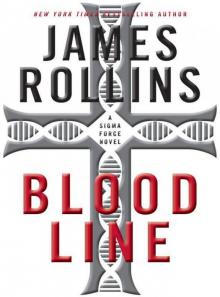 Bloodline: A Sigma Force Novel
Bloodline: A Sigma Force Novel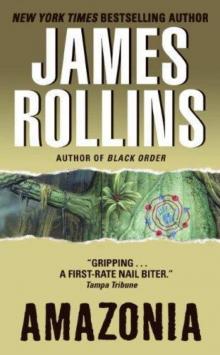 Amazonia: a novel
Amazonia: a novel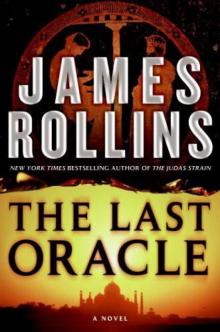 The Last Oracle: A Sigma Force Novel
The Last Oracle: A Sigma Force Novel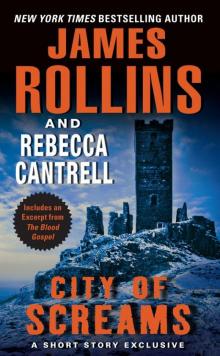 City of Screams (the order of the sanguines)
City of Screams (the order of the sanguines) Ghost Ship: A Sigma Force Short Story
Ghost Ship: A Sigma Force Short Story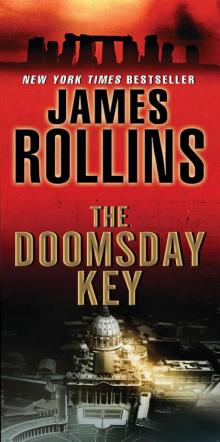 The Doomsday Key: A Sigma Force Novel
The Doomsday Key: A Sigma Force Novel